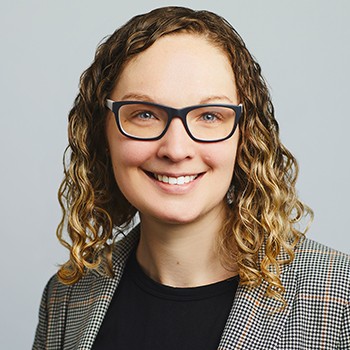A paper published in 2021 in the Journal of LGBTQ Issues in Counseling, co-authored by Dr. Leah Keating (PhD ’17), psychologist and former postdoctoral Fellow at York University, Dr. Robert T. Muller, psychologist and professor in the Faculty of Health, and York PhD student Cassy Wyers (MA ’21), has been awarded the 2021 Quantitative Article of the Year award.


The paper, “LGBTQ+ People’s Experiences of Barriers and Welcoming Factors when Accessing and Attending Intervention for Psychological Trauma,” was named by the Society for Sexual, Affectional, Intersex, and Gender Expansive Identities (SAIGE) as an outstanding paper for “its impactful research contribution to the counseling profession, and specifically to the area of LGBTGEQQIP+ issues.” The award will be presented at a special reception during the American Counseling Association (ACA) Conference in Atlanta, GA, on Friday, April 8. SAIGE is a division of the ACA.
The paper investigates LGBTQ+ people’s experiences accessing mental health services and documents the multiple barriers they encounter when seeking intervention for psychological trauma. The paper came out of a larger study by Keating, Muller and Wyers that was conducted through the Trauma & Attachment Lab led by Muller. That larger study examined LGBTQ+ people’s experiences of trauma mental health. The Trauma & Attachment Lab focuses on better understanding trauma-informed psychotherapy among individuals at risk.

Trauma is pervasive in the LGBTQ+ community and lesbian, gay, bisexual, transgender and queer/questioning individuals are at a greater risk of psychological trauma during childhood and in later years. They also have a significantly higher probability of experiencing sexual assault as an adult. Individuals accessing mental health services for trauma are often met with multiple barriers, many of which are insidious. The paper is important because it focuses on the question of what exactly helps queer-identified individuals to feel more comfortable and willing to access much-needed trauma therapy, as well as documenting what are the barriers to accessing such help.


